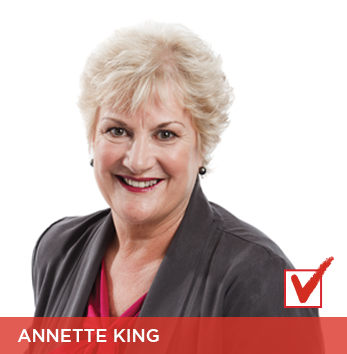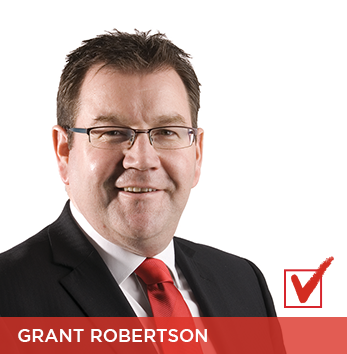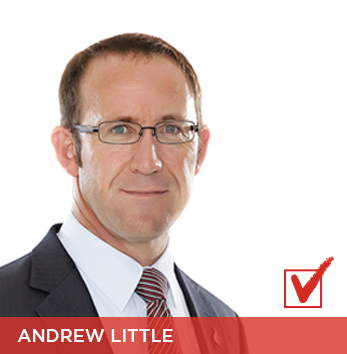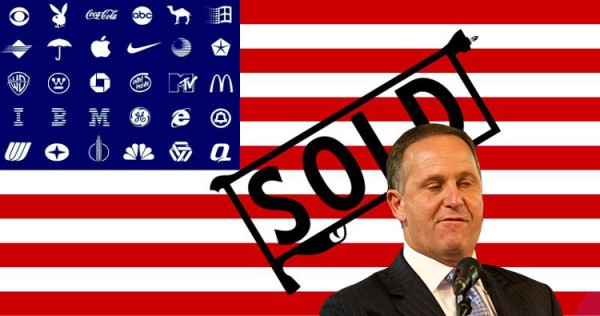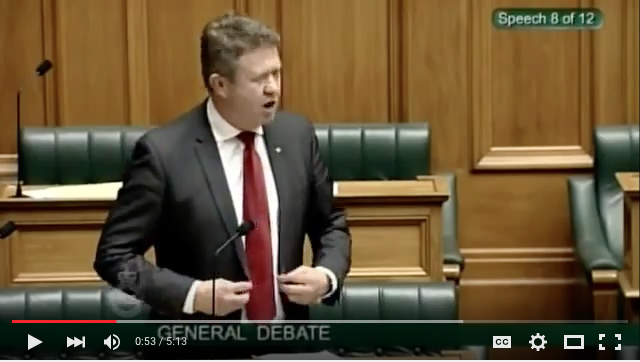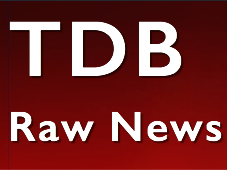Speech to 2015 NZLP Conference
Annette King, Deputy Leader
Palmerston North, Saturday 7 November 2015
One of my all-time favourite movies is that 1997 Australian great – The Castle – where an “ordinary family” stands up to big money and bureaucracy, and wins.
There are many memorable quotes from the movie which 18 years on can still be used today.
- When John Key says under National there’s a “brighter future”, I’d say “tell him he’s dreaming”.
- When Paula Bennett evicts another state house tenant, I’d say “a home is not built of bricks and mortar, but love and memories”.
- Then there is the best one of them all “it’s the vibe, it’s the vibe of the thing”.
I was reminded of that saying when I arrived at the conference yesterday.
It’s the vibe of this conference that caught my attention, the vibrancy, the vitality and the vision we are setting out for New Zealanders. Where we see our future and how we can achieve it with them.
It’s about how a Labour-led Government standing alongside the ordinary family will help them realise their dreams and aspirations.
I have been asked “why is your conference being held in Palmerston North?”
John Cleese may have had a “thoroughly miserable time in the city”, but anyone who knows Palmy knows this is a great place to live and work – I speak from experience!
It’s one of our provincial cities that has returned a Labour MP election after election.
I’d like to acknowledge Iain Lees-Galloway who defied all the National Party naysayers who said Labour couldn’t hold onto this seat.
Not only did he hold onto it, he increased his majority.
It’s a city with hard working, hospitable, entrepreneurial people with a great sense of humour.
After John Cleese’s attack in 2006, which made international headlines, a sign was erected at the Palmerston North rubbish dump, which read the “John Cleese Memorial Tip”.
In Parliament this week the National Party scoffed at Labour coming here for our conference.
This is typical of their attitude towards the regions of New Zealand. They take them for granted, milk them for votes, and then turn their backs on them when it comes to support to grow and keep businesses and jobs in the local community. That’s not our approach. You’ll hear more about why we believe the regions are our job generators, and Labour is here to back them.
I am privileged to be the deputy leader of our Party. And no, I am not the new face of Labour, in fact, I am a very familiar old face, well worn, but not worn out.
I am the same age as Hillary Clinton who wants to be the next President of the United States.
I’m happy to be the deputy leader of the oldest and greatest political party in New Zealand.
I’m also happy to be a member of Caucus that has got its act together under the leadership of Andrew Little.
Over this last year, both the Caucus, and the Party, have worked hard to build a united team, to focus on the issues that affect the daily lives of Kiwis. We’ve gone out and met and listened to those who in working hard, those employing people, the carers, and the volunteers, organisations and clubs, in the cities and small towns around New Zealand.
We have been rebuilding Team Labour because we understand while no one person is perfect, a team can be. We are focused on leading the next Government in 2017.
As we look forward to a better future for New Zealanders, we can take a little time to look back at the legacy of our Party as we enter our centennial year.
Next year, 2016 will be 100 years since the birth of the New Zealand Labour Party, proudly born out of the trade union movement.
A party that survived two world wars, the Great Depression, the ebbs and flows of economic and political fortune, and five National Governments.
In November, this year, we celebrate 80 years since the first Labour Government was elected in 1935. Led by Michael Joseph Savage, Labour defeated George Forbes’ United Party. The population was 1.5 million, and there were 103 men for every 100 women, and the first woman MP had been elected in 1933 – Elizabeth McCombs, the Labour member for Lyttleton.
That first Labour Government was a reforming Government, and so was the 2nd, 3rd, 4th, and the 5th, and so too will be the 6th come 2017.
In 1938 Labour introduced the Social Security Act, much of which is still retained today.
It set up a National Health Service for New Zealand. I recently re-read the principle on which our health services were established back then. There were several essential elements to the policy;
- Prevention of disease, prevention in the full sense includes good housing, a healthy environment, and an adequate and balanced diet.
- Provision for income to replace that which is lost due to unemployment, sickness, old age, and death. The motto must be to sustain the family, cure the patient.
- Provision of all the facilities for the diagnosis, and treatment of disease.
- An adequate provision for research in all matters relative to health.
- Care for patients in the home and community, particularly those who are chronically ill.
As Dr McMillan, the architect of policy said, chronic disease brings poverty, and poverty brings chronic disease.
How relevant those elements are today.
Over the intervening 80 years, five Labour governments sought to build a public health system based on affordability, and accessibility for all New Zealanders. Five National governments have sought to corporatise, privatise, and dismantle it.
So what is the state of the New Zealand Health system today as we enter the 8th year of a National Government?
If you listen to Jonathan Coleman, Tony Ryall’s mini-me without the gaudy shirts and flash ties, all is going well, there is nothing to see here, in fact, John Key said the success of a health minister is to keep health off the front pages of the paper.
If you listen to those who are waiting for health services, or those who provide the services, it’s a different story. Health services – cost, delivery, staffing, timely access – are under huge pressure.
It’s time the Minister listened to the hard working staff at the coal face.
Many recent staff surveys from DHBs report that patient care and treatment is being compromised, that there is not enough staff. Meal breaks and leave are being forgone. There is almost $500 million owing in untaken leave. That is dangerous for staff and patients.
And they are being told achieving volumes, targets, and budgets are more important than staff well-being, the quality of work, and patient safety.
This government is all about balance sheets, short-term political vote catching, and blatherskite.
Four out of the six budgets National has presented have failed to meet the cost pressures in health. There is $1.7 billion missing from the health budgets. These are not our figures, but those of Infometrics and are based on Treasury calculations.
What does that meant to the person needing health care?
It means a father with an autistic daughter suffering a psychotic breakdown is told by the overworked mental health team to call the police.
It means that mental health patients are arriving in emergency departments because community mental health services can’t cope. Mental health services are near breaking point as many NGOs try to provide more with less.
Every DHB is reporting large increases in the number of call outs to community mental health teams, while at the same time Police are being expected to pick up the overflow.
It means the older person living in their own home, near family and friends, managing with one or two hours home help a week having their hours slashed to one or two hours a fortnight. The result can be devastating for the person leading to the need (for) residential care at greater cost to the older person and the tax-payer.
It means the person waiting for a hip or knee replacement waits longer in pain, and disability as DHBs adjust the criteria to fit the balance sheet.
13 DHBs have increased the score at which people can get an orthopaedic operation since 2012, and 160,000 people haven’t even managed to get a specialist appointment.
It means dumb ideas have been promoted to “save money” like the wasteful and now defunct Health Benefits Limited (HBL), an experiment that has cost tens of millions in DHB funding which could have gone to health services.
The idea of cooking hospital food in Auckland, and then trucking to the deep south of New Zealand is a seriously flawed Government idea.
Rather than cook fresh meals using experienced staff and hospital kitchens, some DHBs have been forced to sign up to a deal where food is now “regenerated”. Local jobs have been lost, and local providers of meat, fruit, and vegetables, and other services, have had their contracts cancelled.
The problems are only going to get worse under the policy direction of this Government.
Labour has always believed in taking a long-term strategic approach to social services in New Zealand whether it’s housing, education, social security, or health.
Right back to 1938 the emphasis was on investment into prevention and improving the health of all New Zealanders from before birth right through to old age.
When we look at the statistics today, too many Maori and Pacifica are being left behind.
Too many young people have health issues that are not being addressed.
Too many children are living in poverty in a country where some get plenty.
There is no long-term health plan for New Zealand. This Government lacks vision, and the Minister lacks interest. There are short-term political targets used more for political crowing than improving the health of New Zealanders.
The next Labour-led Government will have an enormous job to turn our health system around, to face forward, and to address the real issues of the future.
I don’t underestimate the challenges. Bringing together the many individual components to provide a quality integrated, affordable service will be difficult, but we have done it before.
We will start by working with those who understand what makes up a good health system.
We will base our decisions on research and evidence of what works – like the world leading approach to integrated care that has been developed out of Canterbury, or the leading edge approach by our Public Health experts to reduce the causes of disease.
We will trust and value the health workforce to enable them to lead and deliver quality services whether in our hospitals, communities, or in people’s own homes.
We will commit to addressing cost pressures in health, as we did when last in Government.
And we will face the real issues that have the potential to cripple our health system and render it unaffordable in the future if we don’t wake up and take action now.
In October I attended a briefing by WHO in Geneva where they warned that urgent government action is needed to reduce the burden of the four non-communicable major diseases;
- diabetes
- cancer
- heart disease, and
- lung disease
Collectively, they are responsible for almost 70 percent of all deaths worldwide.
The report said it is an epidemic of disease which poses devastating health consequences for individuals, families, and communities, and threatens to overwhelm health systems.
For a country like New Zealand the major drivers are an unhealthy diet, and physical inactivity leading to growing levels of obesity. We are now the third most obese nation in the OECD. It’s costing us in excess of $700 million a year in health care expenditure, and lost productivity. Next year obesity will overtake tobacco as the leading cause of declining health according to the Ministry of Health.
Ten years ago the last Labour Government recognised the threat, and put in place measure to tackle it. Health Eating, Healthy Action programmes, Fruit in Schools, Health Promoting Schools, community action, healthy food in tuck shops, and so on. Most of it was dumped and labelled “Nanny State” by an ignorant and politically motivated National Government in 2009.
Last week Jonathan Coleman made a feeble attempt to put in place an “action plan” for obesity.
Those who know a bit about the subject have labelled it inadequate.
We have been working to update our approach to the four Non-Communicable Diseases which featured as a priority in our 2014 Health policy.
An obesity framework is being put together which is multi-faceted based on evidence, and will support what we know can work.
It includes a national roll out of the successful Project Energize programme which started 10 years ago in Waikato, and has been kept alive by a committed DHB, every school in the district, community and sports organisations. It has now been taken up by the Northland DHB. This programme is home-grown, and has reduced the BMI of children involved while increasing their fitness.
It’s cost effective, and it’s been evaluated. Ministry of Health figures put the cost at $19.5 million per annum.
We will put in place a childhood obesity reduction target based on Ministry of Health advice, something Jonathan Coleman ignored in favour or singling out obese children and sending them to the doctor.
In Government, we will provide a clear time-frame for industry to reduce sugar content in all processed food.
There will be front of package labelling that is easy for everyone to understand.
I agree with Jamie Oliver that members of the public would be more conscious about what they were eating if they knew the number of teaspoons of sugar, or salt that is in their food.
We continue to develop, as part of the framework, policy around advertising unhealthy food to children, school food requirements, and so on.
The key to success will be wide community buy-in, which is why working with established Maori and Pacifica providers who have the contacts and credibility will be important.
But most of all it will require strong Government leadership, and that is something I can guarantee will be provided by a Labour-led Government.
We have proved that we can work with communities, with health providers and professionals, with the industry, and we have shown that our motivation is to improve the health of all New Zealanders so no one group is left behind.
As Lord Beaconsfield, quoted in the New Zealand National Health Service policy of 1938, said: “Public health is the foundation on which rests the happiness of people and the power of a community”.

